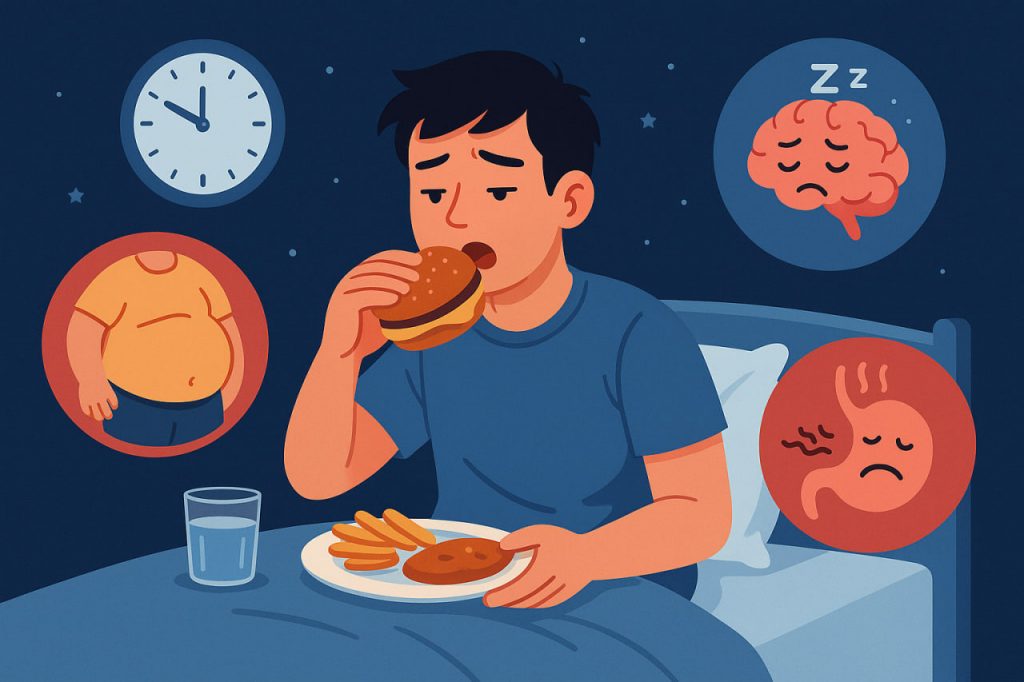Eating is essential for energy and health, but the timing of meals also plays a critical role in how the body processes food. Having dinner or snacks late at night, especially just before sleep, can negatively affect metabolism, digestion, and overall well-being. While occasional late-night eating is unlikely to cause harm, making it a regular habit may lead to health problems over time.
Impact on Digestion
During sleep, the body slows down its functions, including digestion. If you eat late at night, food remains in the stomach longer, leading to discomfort, bloating, or acid reflux. This is especially common after heavy or fatty meals. Poor digestion during sleep can also cause restless nights and reduced sleep quality.
Weight Gain and Metabolism
Late-night eating often contributes to weight gain. When you eat right before bed, your body has less opportunity to burn calories, and the excess energy is more likely to be stored as fat. In addition, night eating is usually associated with high-calorie snacks such as sweets, fast food, or processed foods. Over time, this can disrupt metabolism and increase the risk of obesity.
Blood Sugar and Hormonal Balance
Eating at night affects the body’s natural circadian rhythm, which regulates hormones, including insulin. Late meals can cause fluctuations in blood sugar levels, increasing the risk of insulin resistance and type 2 diabetes. Hormones that control appetite, such as leptin and ghrelin, may also become unbalanced, leading to stronger cravings and overeating.
Sleep Disturbances
Late-night eating may interfere with sleep. Heavy or spicy meals can trigger heartburn, while sugar and caffeine stimulate the nervous system, making it harder to fall asleep. Poor sleep quality, in turn, affects concentration, mood, and overall health the next day. A regular sleep schedule combined with earlier dinners helps support the body’s natural rest cycle.
Long-Term Health Risks
Over time, consistent late-night eating has been linked to higher risks of obesity, cardiovascular disease, and digestive disorders. Studies also show that shift workers, who often eat at night, are more prone to metabolic and heart problems due to disrupted meal timing. This highlights the importance of aligning eating habits with the body’s natural rhythms.
Conclusion
Avoiding late-night meals supports healthy digestion, stable metabolism, better sleep, and reduced risk of chronic diseases. The best practice is to finish dinner at least 2–3 hours before bedtime, focusing on lighter meals in the evening. By respecting the body’s natural rhythms, people can improve both short-term comfort and long-term health.
Glossary
- Circadian rhythm – the body’s internal 24-hour clock that regulates sleep, hormones, and metabolism.
- Insulin resistance – a condition where cells do not respond well to insulin, leading to high blood sugar.
- Acid reflux – a condition where stomach acid flows back into the esophagus, causing discomfort.
- Leptin and ghrelin – hormones that regulate hunger and fullness.
- Metabolism – the body’s process of converting food into energy.


